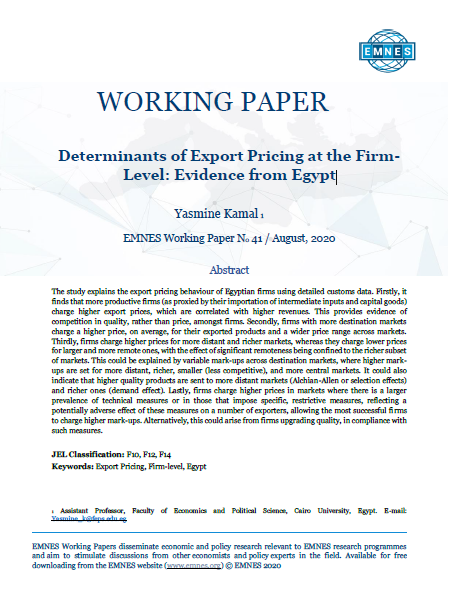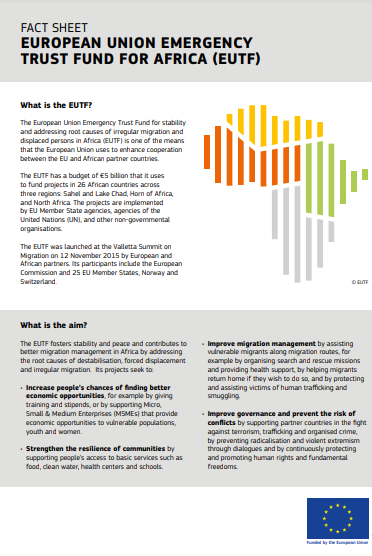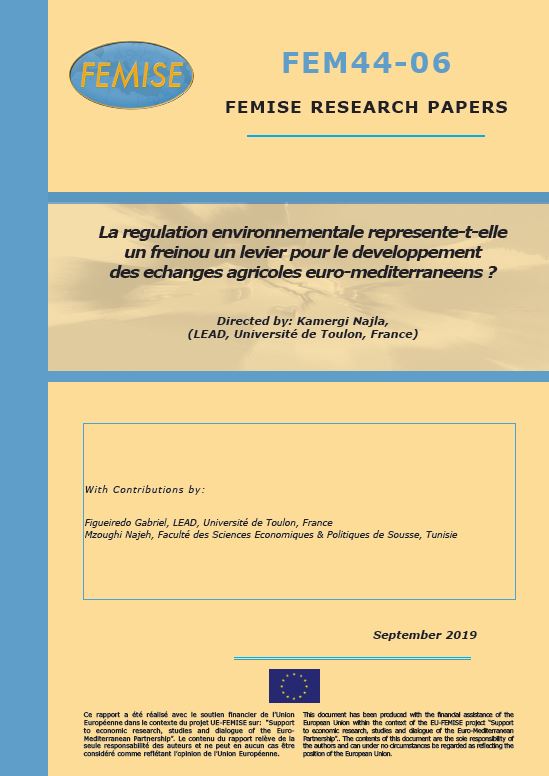EMNES Working Paper No 41 – Determinants of Export Pricing at the Firm-Level: Evidence from Egypt

The study explains the export pricing behaviour of Egyptian firms using detailed customs data.
Firstly, it finds that more productive firms (as proxied by their importation of intermediate inputs and capital goods) charge higher export prices, which are correlated with higher revenues. This provides evidence of competition in quality, rather than price, amongst firms.
Secondly, firms with more destination markets charge a higher price, on average, for their exported products and a wider price range across markets.
Thirdly, firms charge higher prices for more distant and richer markets, whereas they charge lower prices for larger and more remote ones, with the effect of significant remoteness being confined to the richer subset of markets. This could be explained by variable mark-ups across destination markets, where higher mark-ups are set for more distant, richer, smaller (less competitive), and more central markets. It could also indicate that higher quality products are sent to more distant markets (Alchian-Allen or selection effects) and richer ones (demand effect).
Lastly, firms charge higher prices in markets where there is a larger prevalence of technical measures or in those that impose specific, restrictive measures, reflecting a potentially adverse effect of these measures on a number of exporters, allowing the most successful firms to charge higher mark-ups. Alternatively, this could arise from firms upgrading quality, in compliance with such measures.
Latest Publications






























 Syria
Syria 



